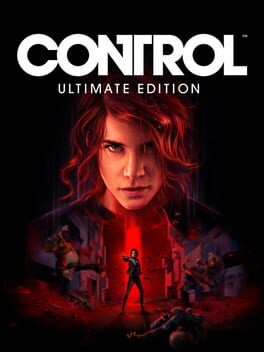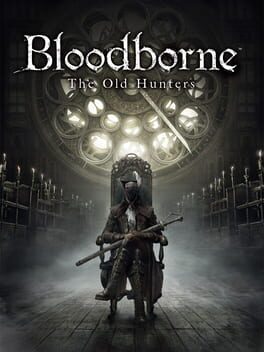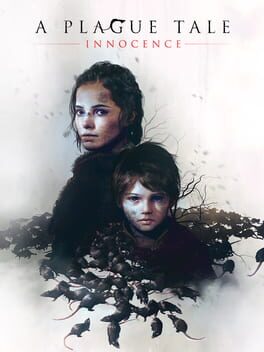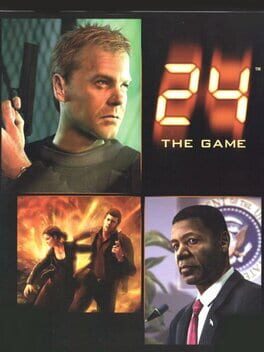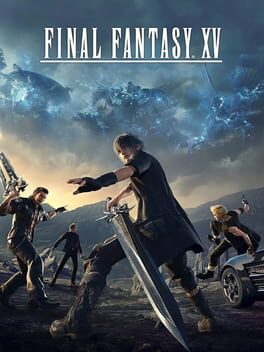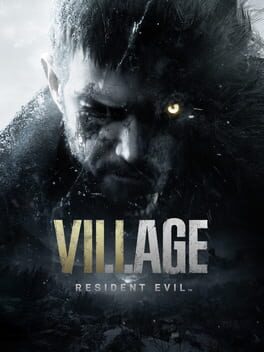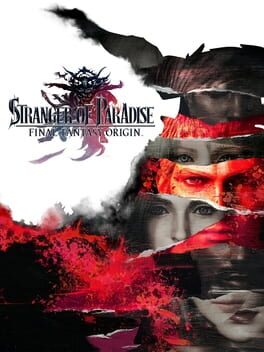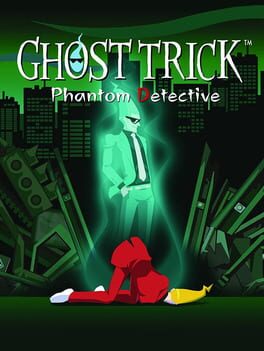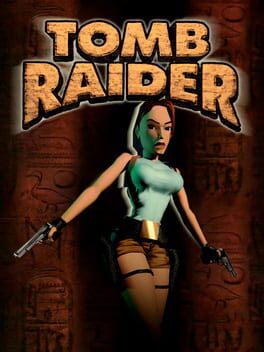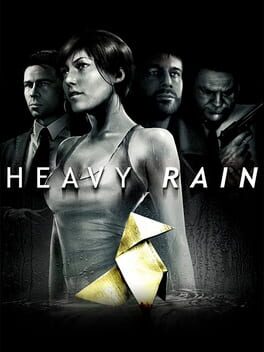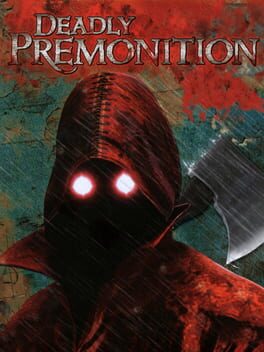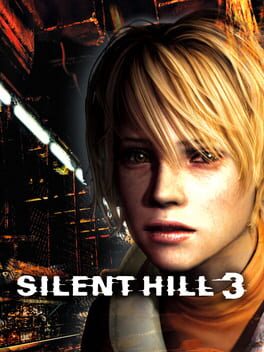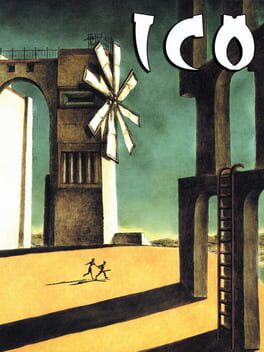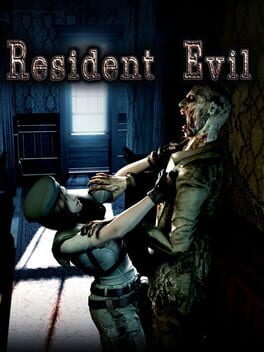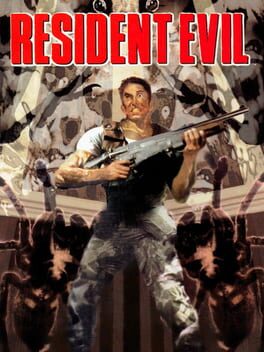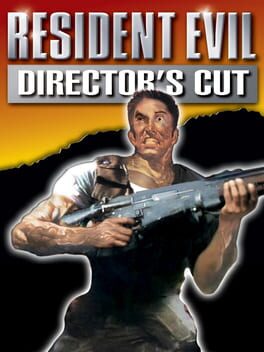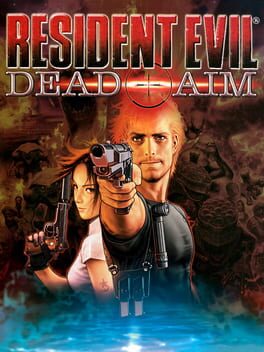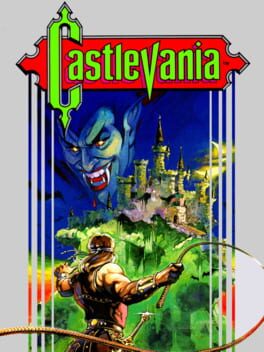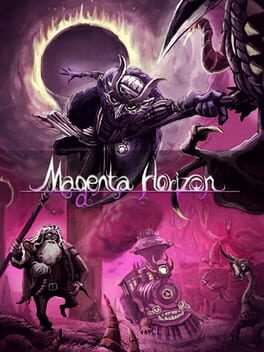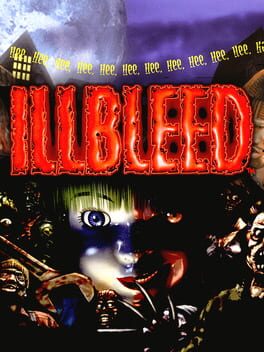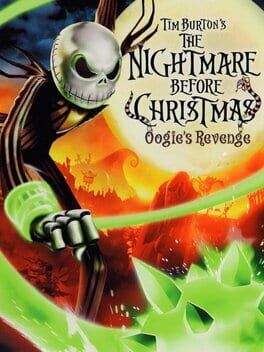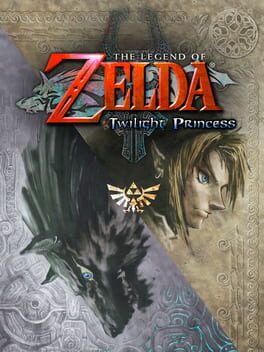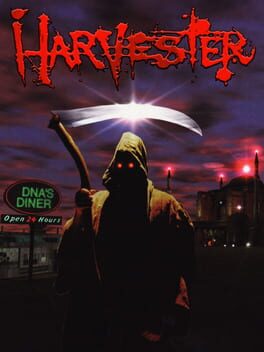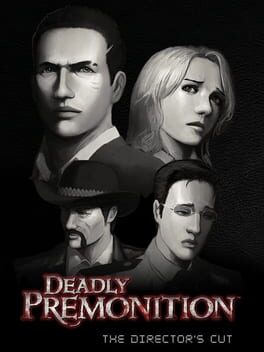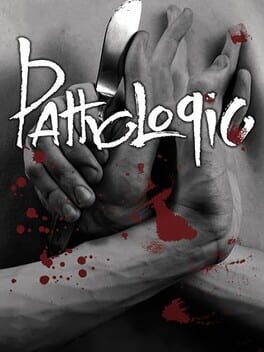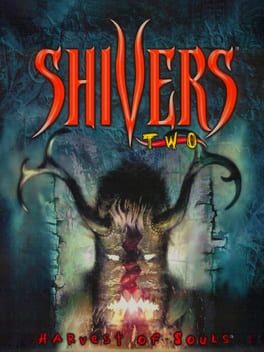hoddic
20 reviews liked by hoddic
Bloodborne
2015
The seminal 21st century horror masterwork. An utterly consuming post-modern translation of Victorian anxieties; the dangers of industrial progress being married to church doctrine as told with both gothic and celestial aesthetics. However it doesn't stop there. That's nothing to say on how the game further goes on to explore the terrifying Eldritch possibilities of unspeakable extraterrestrial beings beyond comprehension lying dormant within labyrinths and our attempts to understand and exploit these cosmic powers. How the result of humanity's endless search for more knowledge is ultimately rendered as capital once it breaches the surface. Just an unimaginably dense work capable of being terrifying, moving, sexy, and amusing in equal measures and completely goes all in on these facets; never shortchanging. My mind spins on the many narrative tangents this game takes you on, its profound sense of empathy for the cursed victims of exploitation, and beyond that it's also just a really fun and addictive gameplay loop with gorgeously designed areas and haunting bosses/enemies that ring in the head long after the television powers off. So stimulating exploring different weapons and builds and seeing what works and what doesn't. Perhaps some of the areas are more annoying than others (Nightmare Frontier, Upper Cathedral Ward, and Yahar'gul can fuck right off) but for something I deeply loved the first time I'm just shocked how much better this feels now. The m-word gets thrown around a lot nowadays but this work of art truly deserves the plaudit of being labelled a masterpiece. A sweeping culmination of everything FromSoftware has been striving to achieve. Everybody else should just stop trying.
Frequently enthralling in theory, occasionally stumbling in practice, yet incredibly beguiling in retrospect. Like Alan Wake, this is a game that toys with spooky contradictions and the grueling concept of ‘process’. Yet unlike that game (besides this being actually good), this is less a twisting narrative about the complicated and often defeating journey of creating art and deconstructing success than one about the sheer mundane becoming extraordinary and introducing order from such a chaotic dynamic. Elements and objects of everyday existence are touched with the supernatural and the obvious American response to this is to transform these newfound and wondrous discoveries into bureaucratic nonsense; where even the forces of capitalist labor inevitably puncture. Remedy stretches these ideas to its absolute limit, nothing feeling shortchanged through the extensive notes and tapes littered around the map. While I think the game is afraid to allow the player to deduce these simplistic connections (Jesse being a talkative cipher yet largely devoid of personality) it’s pretty wild that a AAA title was allowed to be this devoted to such an overtly antagonistic and distinct aesthetic. The brutalist design here is utterly astonishing in how it invites the player to partake in the haywire destruction of office and industrial spaces; witnessing antiquated practices and oppressive structures devolve into otherworldly abstraction. Perhaps that’s the greatest credit I could owe to Remedy despite the overwritten (yet unsentimental) nature of their creation. Anyways the DLC expansions here are rather bloated and lack the grace and active sense of visual innovation that the base game carried, and the overall experience falls into the familiar trapping of chaining endless enemy encounters as its climax in lieu of something as bold as the first two acts. Ultimately, it’s a game I haven’t stopped thinking about while and since playing. The playful and surreal world Remedy has intricately crafted here shows vast promise and the slick gameplay loop is as addictive and deeply satisfying as it is explosively chic.
"You don't have to be insane to kill someone. You just have to think you're right." - Yoko Taro, Creative director of NieR and NieR Replicant Ver.1.22.
NieR (2010) was a very depressing game: It centered around the dusk of humanity, slowly dying out to an incurable disease as monsters roamed the countryside. More often than not, the quests our hero would embark on ended in tragedy, or in one extreme case, with the game itself seemingly mocking you for being the altruistic hero expected of the genre. The party is full of misfits, outcast from society, born into unfair circumstances beyond their control. Halfway through the game, the world itself began to feel bleak. Ugly. Cynical.
NieR (2010) was a game about compassion. The world was bleak, yes, but the people in it found the will to continue because of the people around them. Our hero, who's undying love for his family drives his every action, even when the world has kicked him while he was down, until every scrap of altruism and goodwill is used to justify his violent and self-destructive actions. Our party of misfits, who find true companionship in each other, even if they are all deeply flawed individuals. The people and townsfolk who still find it in them to look out for those closest to them, even in the roughest of times. The Shades you slaughter wholesale, who may be more like the party than any of them would ever like to believe. NieR was unique in that it's condemnation of violence did not start and end with the act itself, but rather the fact that everyone has something to fight for, whether you realize it or not. The horror comes from how easy it is to dehumanize, to dissociate from the slaughter, to kill, when you truly believe you are just in your every action.
Ver.1.22 at its core, is still the same game it was 11 years ago. I felt for the characters like I did with the original, every emotional beat hit just as hard as it hit in the 2010 original, and the new story content slotted into the existing story perfectly. But I worry what Ver.1.22 means for the franchise going forward.
The characters have been dolled up and made more accurate to the original illustrations, and yet the charm of uncanny people in an uncanny world (even if it was unintentional) was lost. The combat has been made silky-smooth like Automata, with fancy lock-on and big sweeping flourishes, and yet the heavy, brutal nature and weight of the original's combat that really sold the impact and viscera has been lost for the sake of flashy extravagance. The soundtrack has been souped up with more instruments, additional passages and a cinematic flair, and yet the original's sense of aggression, quiet and intimacy have been lost (looking at you "Shadowlord"). NieR was admittedly rough around the edges, and not every change was bad necessarily, but NieR has been made to conform to its much more successful younger sibling Automata, and in doing so, has lost some of it's original edge and feel. It's the Yakuza Kiwami to Automata's Yakuza Zero.
Ver.1.22 is no Demon Souls' (PS5), it's no Silent Hill HD Collection, it's no Conker Live & Reloaded. It's still a fantastic game, and a great way to enjoy the story of NieR and its characters. But in our era of re-releases and remasters, we're so blinded by the ideal of progress that we seem to be losing sight of what made our games unique in the first place.
NieR (2010) was a very depressing game: It centered around the dusk of humanity, slowly dying out to an incurable disease as monsters roamed the countryside. More often than not, the quests our hero would embark on ended in tragedy, or in one extreme case, with the game itself seemingly mocking you for being the altruistic hero expected of the genre. The party is full of misfits, outcast from society, born into unfair circumstances beyond their control. Halfway through the game, the world itself began to feel bleak. Ugly. Cynical.
NieR (2010) was a game about compassion. The world was bleak, yes, but the people in it found the will to continue because of the people around them. Our hero, who's undying love for his family drives his every action, even when the world has kicked him while he was down, until every scrap of altruism and goodwill is used to justify his violent and self-destructive actions. Our party of misfits, who find true companionship in each other, even if they are all deeply flawed individuals. The people and townsfolk who still find it in them to look out for those closest to them, even in the roughest of times. The Shades you slaughter wholesale, who may be more like the party than any of them would ever like to believe. NieR was unique in that it's condemnation of violence did not start and end with the act itself, but rather the fact that everyone has something to fight for, whether you realize it or not. The horror comes from how easy it is to dehumanize, to dissociate from the slaughter, to kill, when you truly believe you are just in your every action.
Ver.1.22 at its core, is still the same game it was 11 years ago. I felt for the characters like I did with the original, every emotional beat hit just as hard as it hit in the 2010 original, and the new story content slotted into the existing story perfectly. But I worry what Ver.1.22 means for the franchise going forward.
The characters have been dolled up and made more accurate to the original illustrations, and yet the charm of uncanny people in an uncanny world (even if it was unintentional) was lost. The combat has been made silky-smooth like Automata, with fancy lock-on and big sweeping flourishes, and yet the heavy, brutal nature and weight of the original's combat that really sold the impact and viscera has been lost for the sake of flashy extravagance. The soundtrack has been souped up with more instruments, additional passages and a cinematic flair, and yet the original's sense of aggression, quiet and intimacy have been lost (looking at you "Shadowlord"). NieR was admittedly rough around the edges, and not every change was bad necessarily, but NieR has been made to conform to its much more successful younger sibling Automata, and in doing so, has lost some of it's original edge and feel. It's the Yakuza Kiwami to Automata's Yakuza Zero.
Ver.1.22 is no Demon Souls' (PS5), it's no Silent Hill HD Collection, it's no Conker Live & Reloaded. It's still a fantastic game, and a great way to enjoy the story of NieR and its characters. But in our era of re-releases and remasters, we're so blinded by the ideal of progress that we seem to be losing sight of what made our games unique in the first place.
How were we able to drink up the sea? Who gave us the sponge to wipe away the entire horizon? What were we doing when we unchained this earth from its sun? Where is it moving to now? Where are we moving to? Away from all suns? Are we not continually falling? And backwards, sidewards, forwards, in all directions? Is there still an up and a down? Aren't we straying as though through an infinite nothing? Isn't empty space breathing at us? Hasn't it got colder? Isn't night and more night coming again and again? Don't lanterns have to be lit in the morning? Do we still hear nothing of the noise of the grave-diggers who are burying God? Do we still smell nothing of the divine decomposition? — Gods, too, decompose! (§125)
Despite the fact that its robotic puzzle game mechanics fundamentally work at odds with the Lifelike world design and organic pacing (not to mention the ludicrous final act), A Plague Tale is so refreshingly humanistic I can't help but laud it as an overall effort. Amicia and the misfits she picks up along her journey to revive her sickened brother, are underdeveloped to a fault; writer, Sebastien Renard too often confuses building empathy for his characters with building sympathy. Also, it can be difficult to determine if the game is supposed to be a proponent of violence or critical towards it (Amicia's religious ethics are clouded by a developmental numbing to cruelty, confusing the game's principles).
But the moments that truly shine arrive whenever these children are faced with immediate danger, and are prompted to consider the chaos of the world outside the walls of their home, as they stare death in the face again and again. "Do we have to walk over them?" the boy, Hugo asks when the siblings are forced to venture across a battlefield littered with countless dead soldiers, a thick sheet of white obscuring the landscape like an ambiguous moral fog of war. "Does it hurt them?"
Few titles are as considerate of death as Asobo Studio's game, proposing existential rumination as an intrinsic process of growing up. The children's illustrious home and family are stripped away, sending them into mid-14th century wild France, where they meet a couple of penniless thieves constantly on the run, a young alchemist whose father is stricken by plague, and the burly, vengeful son of a blacksmith.
These characters are simple archetypes; however, by deconstructing typical fantasy RPG tropes, A Plague Tale examines the imaginative significance of the genre and the medium as a whole. Amicia acts like an heroic adventurer when the gang discover a ruined castle, flushing out the black, carnivorous, diseased rats to make a home out of the looming structure.
In many ways, the plot presents a progressive portrayal of rebirth, often linking alchemy to the role of a phoenix rising from ash. "Be brave, you can do this," each sibling will often say to their self when separated.
One ingenious sequence catalogues the villains' sinister operations as the player sneaks through an extensive gauntlet as wee Hugo, on a quest to free his captured mother. When he enters the chapel, it feels enormous and oppressive, but the game maligns not Christianity as a whole, but the corrupt men manipulating its moralistic practices. Faith is the foundation upon which civilization is erected. A plague has no motive, only heinous men do. The plague has taken lives and turned men into desperate monsters, but the meek shall inherit this ill earth.
But the moments that truly shine arrive whenever these children are faced with immediate danger, and are prompted to consider the chaos of the world outside the walls of their home, as they stare death in the face again and again. "Do we have to walk over them?" the boy, Hugo asks when the siblings are forced to venture across a battlefield littered with countless dead soldiers, a thick sheet of white obscuring the landscape like an ambiguous moral fog of war. "Does it hurt them?"
Few titles are as considerate of death as Asobo Studio's game, proposing existential rumination as an intrinsic process of growing up. The children's illustrious home and family are stripped away, sending them into mid-14th century wild France, where they meet a couple of penniless thieves constantly on the run, a young alchemist whose father is stricken by plague, and the burly, vengeful son of a blacksmith.
These characters are simple archetypes; however, by deconstructing typical fantasy RPG tropes, A Plague Tale examines the imaginative significance of the genre and the medium as a whole. Amicia acts like an heroic adventurer when the gang discover a ruined castle, flushing out the black, carnivorous, diseased rats to make a home out of the looming structure.
In many ways, the plot presents a progressive portrayal of rebirth, often linking alchemy to the role of a phoenix rising from ash. "Be brave, you can do this," each sibling will often say to their self when separated.
One ingenious sequence catalogues the villains' sinister operations as the player sneaks through an extensive gauntlet as wee Hugo, on a quest to free his captured mother. When he enters the chapel, it feels enormous and oppressive, but the game maligns not Christianity as a whole, but the corrupt men manipulating its moralistic practices. Faith is the foundation upon which civilization is erected. A plague has no motive, only heinous men do. The plague has taken lives and turned men into desperate monsters, but the meek shall inherit this ill earth.
24: The Game
2006
This review contains spoilers
This Game based on the TV show, sacrifices certain qualities for ones from different categories. The Story is that there is a gas attack that sends many CTU agents away from headquarters when a terrorist attack happens at their base and while escaping with a stolen hard drive, Jack's daughter Kim is kidnapped as a hostage, and Jack tries to stop the terrorists and get Kim back, this is an alright plot for 24, and the game elements make it good, but there are some story problems, like how the President's assassination plot doesn't really get concluded. The Voice acting is really good, feel like acting tones from the show itself, especially Kiefer Sutherland. The Graphics are good and represent the show well, even if the effects could be better with quality. The Gameplay has you follow missions for the CTU with a crew to stop Terrorist acts, by running around shooting or detaining bad guys, with a great aiming system. Controls are a bit stiff, don't feel flowy enough to get away from bullets faster. Driving missions have you go from one place to another, with some car chases thrown in for more gameplay. Minigames are also used for missions in many ways, you have to interrogate with the right kinds of tones to move to the right place, scan floors to find enemies on every part of the area, even if somehow other snipes turn up anyway that weren't there before, clicking the right colored blocks when the mouse randomly travels around the screen, moving found letters around until they are all green to find the password, and figuring out which path will reach the end, these minigames are fun, and don't feel out of place since they are used as a gameplay version of the tasks that are being done of screen. There are some Gameplay moments that don't make sense, like how when you avoid being caught on camera, you can get caught as long as it's not for long, which is stupid because you would still be on screen for that short amount of time, also there's a scene where you sneak past scientists, yet they should have seen you in the distance. Also, different screens appearing sometimes for different views, just like the show does, great way to fit that it. Music is decent, but not memorable in anyway. 24: the game is a decent attempt on bringing a Tv adaption to life with a good combination of fun gameplay and being true to its roots.
Final Fantasy XV
2016
Being a series that never repeats a character or world, the enduring conflict in the Final Fantasy series is between technological determinism and artistic vision. Its arguably finest moment, Final Fantasy VII, resolves the two seamlessly: a game of unheralded beauty and scope that could have only been made with the affordances of the CD ROM over cartridges. The question of whether the game was made for the PlayStation, or whether the platform gave the developers the tools they needed for uninhibited creative expression can be argued either way, although it seems obvious that both are the case. For the past two decades however the picture has been one of negotiation: what in the mid nineties seemed like expressive opportunity quickly revealed itself as a contract for tech fetish show-reels, the game as an advertisement for the platform. This has put the series in a strange position where it has had to both embody and warn against the popular narrative of graphical (mimetic) progress leading to better art. Across the post-VII titles we see a variety of ways to use spectacle to artistic ends, to deny spectacle for artistic emphasis, to reconstitute notions of beauty and playability. The series' last moment of optimism was Final Fantasy X, a consciously next gen looking game that above all attempted to tell its most moving story yet. It succeeded, but beneath this was a subversive meta-commentary on stimulation; tech determinism and numbing blockbusters; resistance as affection; radicals salvaging and repurposing the tools jettisoned in the name of progress.
This decade's entry, and the would-be platform advertisement (as VII and X before) Final Fantasy XIII was met with scorn from players and critics alike for delivering on impressive cut-scenes but falling short as a game and a dramatic work. Although it seemed at the time upsetting that a once unimpeachable series could suddenly be faulted, this failure highlighted a widespread public rejection of tech determinism in favour of something more sophisticated. Game aesthetics after all are not surface textures alone but the way the game moves, the way the player feels grounded or groundless in its environments, the rules of the game (what can and can't be done), confrontations in and around the game's embedded narrative, and the way these things flow into one another. It is with this in mind that we come to Final Fantasy XV: the most joyously bizarre and infuriating big profile game released this lifetime. It's a heavily reflexive work, but unlike X it lays out and explores its themes with a startling clarity activated by free-form play. Where others in the series might force the player through tens of hours of storytelling before opening up as a reward, XV reverses the formula such that it begins as an 'open world' and it is up to the player to decide when to move things along in a dramatically meaningful way. Every day then is the sum of what the player explored, of the hangouts with the central friend group, of the pictures taken for the memories. The time of the open world is actually time-less, variable in weather events, but effectively a kind of influence-free dreamstate from which we choose to or not to, awaken.
Its curious approach to time and time-keeping is explored through the friction between storytelling and gameplay, and as such simply running around forces us to examine notions of entertainment, time-wasting, escapism, and responsibility. The game's master-stroke is that it all registers emotionally as well as thematically. What is immediately apparent is that its broad narrative takes place at a distance: where we typically expect spectacular cut-scenes to establish worlds, relationships, and stakes, Final Fantasy XV begins with silent stares and disappointed glances. The game starts when we walk out of the story at hand, and there we remain on the perimeter, with the nobodies. When macro context is required, we receive short flashbacks or fragments of action happening from afar. We might be curious, but Noctis has decided that these things do not matter because they are not directly impacting him and his endless summer. We remember back to those disappointed glances and realise that to the standards of everyone outside of our friend group (those engaged in what looks like a conventional RPG), we are failures.
Critics have pointed out that the bland repetition of sidequests in the game makes it feel as grindy as an MMO, and indeed this sense of uselessness is not helped by the anti-spectacle of the way that we receive the central narrative. This is all by design; we are both supposed to enjoy and not enjoy fucking around aimlessly. The combat builds on the gravity-defying kinetics of Kingdom Hearts to the point that it is difficult to tell whether you are terrible or super good at the game. For those who struggle with spontaneous chaos, there is the option to slow things down and change it into a more conventional turn-based RPG. One does get the feeling however that we're supposed to run into everything in real-time, sloppily, crashing into existence, and realising a bit too late that we need to pack our shit and run for the hills. Nobody is forcing us to do these additional pointless things. The central game can be completed in a matter of hours, but there's so much to do that means so very little! Where else do we get to hear the four friends talking shit? Where else do we get to launch into frantic combat half by accident only to come across spine-tingling vistas which we then photograph and review over a beer in the evening? Director Hajime Tabata knows that it is all meaningless, but the game is for those who find profundity in aimlessness-
Oh, the alcoholic afternoons
When we sat in your rooms
They meant more to me
Than any, than any living thing on earth
As we play through the batshit fights and race the sunshine to the lakeside campground, we come across people who all make a point of asking Isn't there something else you should be doing?. Early in the game this feels like the bland pre-programmed dialogue that so often comes in an open world with too many NPCS for meaningful scripting, but before long it registers in two ways. First, we feel guilty that we're not moving things forward and accepting responsibility as the game's 'hero', and second, an expiry date is put on this utopia- we become acutely aware that this is a fragile state that must necessarily come to an end. Like that last summer between finishing high school and deciding what's next, before people grow up and change and move to different cities, XV is full of pointless diversions, ecstatic highs, and a bitter feeling that the sun is setting on an endless summer. We feel the tipping point coming at about Chapter 9 and from there it's a free-fall into adult responsibility, mortality, and the dissolution of friendship. Tabata allows us to travel between this new dramatically active present and the useless past, but he does this in a strange and moving way- where in the present people are maimed and friends become enemies, in the past everything is still sun-drenched and golden- an eternity of youth and forever-friendships. I openly admit to welling up multiple times at the goodwill and happiness of the game's nostalgic utopia, as the present by contrast becomes so cold and unforgiving.
What is so unexpected is that we anticipate a hero's journey from Noctis, but the game is made jagged by its bold subversions. Noctis must learn what he can to make things better, but also to understand the implications of his shirking. He'll be the first to tell you that he will never be the hero the world needs, but it's more complicated than just walking away and letting someone else take over. The game is sympathetic to the teenage myopia of why should I? I never asked for this- like Donnie Darko's self-martyrdom, his ultimate expression of selflessness must come through a selfish framework. And like Donnie Darko there's a kind of empathy involved therein. We receive flashes of his betrothed, Lunafreya, but neither party seem interested in ever meeting. Luna has fully embraced her role as healer and oracle, orchestrating the events of Final Fantasy XV as its sole hero, the one person who genuinely cares about, and can positively influence how things will go. She deserves better, or different, but she's stuck with this, and whatever Noctis deserves, he's not up to what must follow. It's difficult to account for why Noctis and not Luna is the one we follow, although we can argue that Noctis is defined by the qualities he lacks compared to a) Lunafreya, and b) his friends who form a composite hero. We fuck around as Noctis, able to get by through the efforts made by others, and the realisation we come to is not unlike that of K in Blade Runner 2049. Final Fantasy XV is not the game we get to play; it's everything that we miss.
Tonally Final Fantasy XV strikes a perfect balance between knowing and spontaneous weirdness, which means that it frequently pushes itself into the domain of Deadly Premonition-esque uncanny horror. At its most pointed it uses this unease to take a stab at big budget games mimicking the surfaces of the physical world without considering how they'll appear in the context of an animation, and this otherwise underscores the cognitive dissonance involved in playing games whose narrative beats are out of sync with the way we play them. We'll receive bad news, witness something frightening, or just shit talk about frogs, and before we know it we're stumbling off into images of stunning grace and elegance. An ongoing issue with open world games is whether developers can make them feel alive, as emptiness makes for ghost towns and hyperactivity makes for claustrophobia, but Final Fantasy XV has a mixture of regional sameness and atmospheric dynamics that mean its landforms never stop exciting, especially when viewed from the motorways that have us gliding through the sublime. Towns and cities are brought to life with immense detail and have us stumbling through at night like drunks, not realising that we've been here already. Travelling at night means we're perpetually in need of a place to crash and restock, which means that settlements rarely feel redundant or deserted.
As a conventional narrative work it is unfulfilling by nature, because the onus is on the player to discover what matters and what doesn't on the narrative periphery. The real narrative is the memories made and reflected on at the end of every day through Prompto's viewfinder. When things come together they do so with a processional sadness that feels like a splash of cold water to the face. Even with closure, the game actively denies the player catharsis. The work concerns itself with ennui, responsibility, and the passage of time, and it liberates itself from the expensive demonstration of these themes by having the player work through them instead. As I have said, the Final Fantasy series has frustratedly been arguing for a complicated game aesthetics for over two decades, from its position as the leader of shiny new surfaces. In many ways the consciously retrograde Final Fantasy IX predicted (and encouraged) the rise in indie games as a response to regurgitative AAA titles, and Final Fantasy XII demonstrated the series' ambitions: an artistic digital patina; an emphasis on flow, freedom, and experimentation; a ground-view, decentralised view of a greater narrative.
A more truthful, more constructive view of the series is not one of self-contained masterpieces, but as a network of ideas about play, about storytelling, about art, which as time goes on increasingly learn from and challenge one another, resulting in works both disastrously and wonderfully broken. The series has always been progressive, even when it's retrograde, and sound even when it's scrappy. Final Fantasy XV is a perfect disaster, and an indication that rather than playing it safe, these things are only going to get stranger in pursuit of new highs and impossible resolutions.
This decade's entry, and the would-be platform advertisement (as VII and X before) Final Fantasy XIII was met with scorn from players and critics alike for delivering on impressive cut-scenes but falling short as a game and a dramatic work. Although it seemed at the time upsetting that a once unimpeachable series could suddenly be faulted, this failure highlighted a widespread public rejection of tech determinism in favour of something more sophisticated. Game aesthetics after all are not surface textures alone but the way the game moves, the way the player feels grounded or groundless in its environments, the rules of the game (what can and can't be done), confrontations in and around the game's embedded narrative, and the way these things flow into one another. It is with this in mind that we come to Final Fantasy XV: the most joyously bizarre and infuriating big profile game released this lifetime. It's a heavily reflexive work, but unlike X it lays out and explores its themes with a startling clarity activated by free-form play. Where others in the series might force the player through tens of hours of storytelling before opening up as a reward, XV reverses the formula such that it begins as an 'open world' and it is up to the player to decide when to move things along in a dramatically meaningful way. Every day then is the sum of what the player explored, of the hangouts with the central friend group, of the pictures taken for the memories. The time of the open world is actually time-less, variable in weather events, but effectively a kind of influence-free dreamstate from which we choose to or not to, awaken.
Its curious approach to time and time-keeping is explored through the friction between storytelling and gameplay, and as such simply running around forces us to examine notions of entertainment, time-wasting, escapism, and responsibility. The game's master-stroke is that it all registers emotionally as well as thematically. What is immediately apparent is that its broad narrative takes place at a distance: where we typically expect spectacular cut-scenes to establish worlds, relationships, and stakes, Final Fantasy XV begins with silent stares and disappointed glances. The game starts when we walk out of the story at hand, and there we remain on the perimeter, with the nobodies. When macro context is required, we receive short flashbacks or fragments of action happening from afar. We might be curious, but Noctis has decided that these things do not matter because they are not directly impacting him and his endless summer. We remember back to those disappointed glances and realise that to the standards of everyone outside of our friend group (those engaged in what looks like a conventional RPG), we are failures.
Critics have pointed out that the bland repetition of sidequests in the game makes it feel as grindy as an MMO, and indeed this sense of uselessness is not helped by the anti-spectacle of the way that we receive the central narrative. This is all by design; we are both supposed to enjoy and not enjoy fucking around aimlessly. The combat builds on the gravity-defying kinetics of Kingdom Hearts to the point that it is difficult to tell whether you are terrible or super good at the game. For those who struggle with spontaneous chaos, there is the option to slow things down and change it into a more conventional turn-based RPG. One does get the feeling however that we're supposed to run into everything in real-time, sloppily, crashing into existence, and realising a bit too late that we need to pack our shit and run for the hills. Nobody is forcing us to do these additional pointless things. The central game can be completed in a matter of hours, but there's so much to do that means so very little! Where else do we get to hear the four friends talking shit? Where else do we get to launch into frantic combat half by accident only to come across spine-tingling vistas which we then photograph and review over a beer in the evening? Director Hajime Tabata knows that it is all meaningless, but the game is for those who find profundity in aimlessness-
Oh, the alcoholic afternoons
When we sat in your rooms
They meant more to me
Than any, than any living thing on earth
As we play through the batshit fights and race the sunshine to the lakeside campground, we come across people who all make a point of asking Isn't there something else you should be doing?. Early in the game this feels like the bland pre-programmed dialogue that so often comes in an open world with too many NPCS for meaningful scripting, but before long it registers in two ways. First, we feel guilty that we're not moving things forward and accepting responsibility as the game's 'hero', and second, an expiry date is put on this utopia- we become acutely aware that this is a fragile state that must necessarily come to an end. Like that last summer between finishing high school and deciding what's next, before people grow up and change and move to different cities, XV is full of pointless diversions, ecstatic highs, and a bitter feeling that the sun is setting on an endless summer. We feel the tipping point coming at about Chapter 9 and from there it's a free-fall into adult responsibility, mortality, and the dissolution of friendship. Tabata allows us to travel between this new dramatically active present and the useless past, but he does this in a strange and moving way- where in the present people are maimed and friends become enemies, in the past everything is still sun-drenched and golden- an eternity of youth and forever-friendships. I openly admit to welling up multiple times at the goodwill and happiness of the game's nostalgic utopia, as the present by contrast becomes so cold and unforgiving.
What is so unexpected is that we anticipate a hero's journey from Noctis, but the game is made jagged by its bold subversions. Noctis must learn what he can to make things better, but also to understand the implications of his shirking. He'll be the first to tell you that he will never be the hero the world needs, but it's more complicated than just walking away and letting someone else take over. The game is sympathetic to the teenage myopia of why should I? I never asked for this- like Donnie Darko's self-martyrdom, his ultimate expression of selflessness must come through a selfish framework. And like Donnie Darko there's a kind of empathy involved therein. We receive flashes of his betrothed, Lunafreya, but neither party seem interested in ever meeting. Luna has fully embraced her role as healer and oracle, orchestrating the events of Final Fantasy XV as its sole hero, the one person who genuinely cares about, and can positively influence how things will go. She deserves better, or different, but she's stuck with this, and whatever Noctis deserves, he's not up to what must follow. It's difficult to account for why Noctis and not Luna is the one we follow, although we can argue that Noctis is defined by the qualities he lacks compared to a) Lunafreya, and b) his friends who form a composite hero. We fuck around as Noctis, able to get by through the efforts made by others, and the realisation we come to is not unlike that of K in Blade Runner 2049. Final Fantasy XV is not the game we get to play; it's everything that we miss.
Tonally Final Fantasy XV strikes a perfect balance between knowing and spontaneous weirdness, which means that it frequently pushes itself into the domain of Deadly Premonition-esque uncanny horror. At its most pointed it uses this unease to take a stab at big budget games mimicking the surfaces of the physical world without considering how they'll appear in the context of an animation, and this otherwise underscores the cognitive dissonance involved in playing games whose narrative beats are out of sync with the way we play them. We'll receive bad news, witness something frightening, or just shit talk about frogs, and before we know it we're stumbling off into images of stunning grace and elegance. An ongoing issue with open world games is whether developers can make them feel alive, as emptiness makes for ghost towns and hyperactivity makes for claustrophobia, but Final Fantasy XV has a mixture of regional sameness and atmospheric dynamics that mean its landforms never stop exciting, especially when viewed from the motorways that have us gliding through the sublime. Towns and cities are brought to life with immense detail and have us stumbling through at night like drunks, not realising that we've been here already. Travelling at night means we're perpetually in need of a place to crash and restock, which means that settlements rarely feel redundant or deserted.
As a conventional narrative work it is unfulfilling by nature, because the onus is on the player to discover what matters and what doesn't on the narrative periphery. The real narrative is the memories made and reflected on at the end of every day through Prompto's viewfinder. When things come together they do so with a processional sadness that feels like a splash of cold water to the face. Even with closure, the game actively denies the player catharsis. The work concerns itself with ennui, responsibility, and the passage of time, and it liberates itself from the expensive demonstration of these themes by having the player work through them instead. As I have said, the Final Fantasy series has frustratedly been arguing for a complicated game aesthetics for over two decades, from its position as the leader of shiny new surfaces. In many ways the consciously retrograde Final Fantasy IX predicted (and encouraged) the rise in indie games as a response to regurgitative AAA titles, and Final Fantasy XII demonstrated the series' ambitions: an artistic digital patina; an emphasis on flow, freedom, and experimentation; a ground-view, decentralised view of a greater narrative.
A more truthful, more constructive view of the series is not one of self-contained masterpieces, but as a network of ideas about play, about storytelling, about art, which as time goes on increasingly learn from and challenge one another, resulting in works both disastrously and wonderfully broken. The series has always been progressive, even when it's retrograde, and sound even when it's scrappy. Final Fantasy XV is a perfect disaster, and an indication that rather than playing it safe, these things are only going to get stranger in pursuit of new highs and impossible resolutions.
Shenmue
1999
Intermittently torturous, always detached, and Shenmue only improves in this regard two decades on. It is often cited as the open world urtext, but where Shenmue works in alienation the games it influenced put the player-character at the centre of the universe. In the Grand Theft Auto series the player moves in a reckless, fluid way, in stark contrast to the rigid and wandering NPCs — every frame explodes into being through our freedom, of movement, of decision, of infinite variety and eternal recurrence, and yet we are never allowed access to the patterns or behaviours of those around us. The very absence of an 'talk' button along with the sheer number of people spawned across the game environment has us intuitively accept that the world is that which we do — we are its God, its conductor. With Shenmue however, Ryo's body moves in this blocky, unwieldy way, and must fit into the whims and schedules of those around him. The game's day-night cycle seems to actively close rather than open opportunities, such as in cases where we are tasked with waiting tens of hours to meet certain people at certain times of day, and all Ryo's options for time-killing actively feel like time-killing (in the sense of time we know we will never get back) — throwing darts, visiting noodle houses, patting cats, watching the trees. There is no way to accelerate time's passing, and the only way to endure it is to actively make the time to enjoy the small things, which is to say reframing the story as the distraction and not the other way around. Still, as Zen as this all sounds, however beautiful the sunsets and poignant the broken swing by the stairs, Shenmue makes it so the player never feels as though they belong in it.
Every day begins and ends at the Hazuki Residence, in a curious disciplinary move that has us clumsily navigate a house that never becomes a home, waiting as Ryo puts on or takes off his shoes, before venturing into a world that similarly never opens up to him. The anonymous faces in Grand Theft Auto are props until they're activated by player action, reflecting the scale of cause and effect, but in Shenmue we are always trying to act according to the dominating logic of the world, making the people in it both obstacles that are necessary to progress the game, and ever-present reminders of our not belonging. If we see an 'interact' prompt appear near a stranger, Ryo is just as likely to receive some valuable information as he is to be, in the most polite way possible, called a creep and asked to leave. He can't jump or skip or even run through a door. He checks over his shoulder to make sure he's alone before exercising in the park. When Ryo sees someone else is using the stairs, he will wait until they get to the top before he even begins is ascent, one gets the sense out of discomfort rather than politeness. They have their routines and we don't have ours. This doesn't make us free, it makes us perpetually alone. An old woman asks Ryo for directions and says she'll wait at the park to hear from him. If the player forgets, the old woman can never be found again. How long did she wait? Did she find the place on her own? Is she okay? It's always like this, he's impossible, nobody knows who he is and neither does he. Even those who know Ryo's name expect something of him that he's failing to embody, and this sense of quiet failure permeates Shenmue in both the way the world is painted and the way it plays.
Interactions with friends and family remain at the level of surface courtesies, veiling a great sadness and isolation that hints at impossible rifts between each and every person. Nobody knows Ryo — he's always falling just short of being what others think they know of him, and on an entirely different course from what's expected in the long run. And looking to him for answers leads to an even more penetrating sense of absence, a passive neglect of others and a dead eyed embrace of tangible actions and information pathways where the insignificant is given significance, and significant actions are always underpinned by the mundane. He confronts gang members like a kid buying a toy, and he buys toys like he's finally found meaning in this world. The central ambiguity in Shenmue, and what makes it so affecting, is whether this suffocating sense of loneliness is inherent to the world or just Ryo, who as the game's protagonist paints the way it appears to us. Is there a difference? When he is showed great generosity by Fuku-San, Ryo's unreadable face casts a cold negation of the gesture, making the other person seem comically, embarrassingly over-expressive. But it's Ryo who is embarrassing — his straightforward detective questioning, gullibility, and tonedeaf approach to human interaction make his journey less a myopic descent into obsession than a sort of hobby or project, a convenient opportunity for something to do. At one stage Nozomi asks Ryu about school, and we realise all this free time he has is the result of shirking a role that could give him some structure; some direction. In every sense he is out of sync: like Kyle MacLachlan's character in Blue Velvet no matter how successfully he works through the underbelly of his town he's only ever met with bemusement and confusion by the people he finds there. He can't be here, but he can't go back either. Once again the mechanic of Ryo's return to the Hazuki Residence reinforces every morning and every evening that there is no home for him. Shenmue is affecting because it forces us to play through, to physically enact this discomfort, while reading around Ryo that it is he who is the stranger.
The strangest and most subtly moving decision made is that the game's final act begins with Ryo taking on a job at the dock, driving forklifts. Where Ryo's physically cumbersome body spent weeks running around Dobuita, mangling interactions and finding ways to kill time, Ryo's dock work finally gives him purpose, a routine, and targets to meet. Throughout the rest of the game it is impossible to know whether one is making progress or floundering, but the dock work gives instant feedback in the form of quotas and bonus cheques reflecting efforts made. The forklifts also control with a fluidity uncommon in the rest of the game and reach speeds he can't on foot. Lunch breaks begin at the same time every day with a shot of Ryo sitting with his colleagues and eating; he could almost belong here. And because we're not waiting for time to pass but rather trying to do things in time, the way the skies change during the afternoon shift can at the docks be appreciated for how beautiful they are. Time becomes valuable, and as it passes it fills the scene with warmth before it leaves. Despite the routinised action or perhaps because of it, it is clear there will never be another day exactly like this one. One afternoon Ryo sees Nozomi at the docks taking photos and there is this confronting atmosphere because Ryo for the first time sees himself in the face of someone who recognises what he's doing — not for what his family represents or what anyone thinks he should be doing, but for what he is doing as he works at the dock. This is followed by a strange and beautiful sequence where Ryo's and Nozomi's photograph is taken twice, and Ryo must pick one to take away. One makes it appear as though they are lovers, the other, total strangers, and clearly the truth is somewhere in between. This moment of self-presentation to someone who matters is immediately turned into a fiction, or perhaps memorialised as a future that can never be between two people, one who doesn't know who she is but knows what she wants, the other a blank surface reflecting back everything indeterminate, everything unsure, everything anxious about the one unfortunate enough to look. He is in short a negation.
As the year wraps up, the uncaring faces increase in volume, and many of the familiar ones say they're going away. Ryo's neighbourhood, already a quietly lonely place, comes to feel like a ghost town of dead end interactions and suspended time — a place simultaneously too big and too small to sustain life. Ryo's dispassionate movement through Yokosuka is curious, because he is not the one feeling these things. Everything to him is information, and if that information leads abroad, so be it. He doesn't care one way or another, but we do. That Yokosuka is framed as a place that is already dead and in the process of being remembered must then belong to somebody else, someone who is remembering the story as Ryo tells it. Indeed as others try to reach out for him it becomes clear that it is not the town that is the ghost, but Ryo, that figure once present and well liked but who died one day and now glides through with blank eyes, forever out of time and place.
Without the language of Chinese cinema the story is simplistic and weird, but its grandiose animated dreams and talks of fate cut an effective threshold between the exhaustingly quotidian world of Shenmue and its mythic aspirations. Its textures are uniformly dingy and wet looking but this adds to Ryo's sense of claustrophobia, and the alienating temporality of the game that insists we shouldn't be here. Indeed the construction of the New Yokosuka Movie Theatre that will never be finished, and dig site and Sakuragaoka suggest the world will keep moving once we leave but can't start until that happens. The ability to talk to people who will only offer 'Sorry I don't feel like talking' leads to disappointment before its themes of isolation become clear. The animations haven't aged well but the offbeat rhythms of the game work its visuals into an uncanny space both otherworldly and uncomfortably familiar. It's also occasionally gorgeous by any standards: in one scene on a motorbike Yu Suzuki manages an extended reference to Wong Kar-wai's Fallen Angels and, short a bloom effect to mimic that director's blurry expressionism, simply layers brake light colours across the screen. I'll admit I lost my breath for a full minute: the absence of a bleeding light for a strange, rigid, suspended rendering of abstract human emotion might be the game in a single wonderful image.
Every day begins and ends at the Hazuki Residence, in a curious disciplinary move that has us clumsily navigate a house that never becomes a home, waiting as Ryo puts on or takes off his shoes, before venturing into a world that similarly never opens up to him. The anonymous faces in Grand Theft Auto are props until they're activated by player action, reflecting the scale of cause and effect, but in Shenmue we are always trying to act according to the dominating logic of the world, making the people in it both obstacles that are necessary to progress the game, and ever-present reminders of our not belonging. If we see an 'interact' prompt appear near a stranger, Ryo is just as likely to receive some valuable information as he is to be, in the most polite way possible, called a creep and asked to leave. He can't jump or skip or even run through a door. He checks over his shoulder to make sure he's alone before exercising in the park. When Ryo sees someone else is using the stairs, he will wait until they get to the top before he even begins is ascent, one gets the sense out of discomfort rather than politeness. They have their routines and we don't have ours. This doesn't make us free, it makes us perpetually alone. An old woman asks Ryo for directions and says she'll wait at the park to hear from him. If the player forgets, the old woman can never be found again. How long did she wait? Did she find the place on her own? Is she okay? It's always like this, he's impossible, nobody knows who he is and neither does he. Even those who know Ryo's name expect something of him that he's failing to embody, and this sense of quiet failure permeates Shenmue in both the way the world is painted and the way it plays.
Interactions with friends and family remain at the level of surface courtesies, veiling a great sadness and isolation that hints at impossible rifts between each and every person. Nobody knows Ryo — he's always falling just short of being what others think they know of him, and on an entirely different course from what's expected in the long run. And looking to him for answers leads to an even more penetrating sense of absence, a passive neglect of others and a dead eyed embrace of tangible actions and information pathways where the insignificant is given significance, and significant actions are always underpinned by the mundane. He confronts gang members like a kid buying a toy, and he buys toys like he's finally found meaning in this world. The central ambiguity in Shenmue, and what makes it so affecting, is whether this suffocating sense of loneliness is inherent to the world or just Ryo, who as the game's protagonist paints the way it appears to us. Is there a difference? When he is showed great generosity by Fuku-San, Ryo's unreadable face casts a cold negation of the gesture, making the other person seem comically, embarrassingly over-expressive. But it's Ryo who is embarrassing — his straightforward detective questioning, gullibility, and tonedeaf approach to human interaction make his journey less a myopic descent into obsession than a sort of hobby or project, a convenient opportunity for something to do. At one stage Nozomi asks Ryu about school, and we realise all this free time he has is the result of shirking a role that could give him some structure; some direction. In every sense he is out of sync: like Kyle MacLachlan's character in Blue Velvet no matter how successfully he works through the underbelly of his town he's only ever met with bemusement and confusion by the people he finds there. He can't be here, but he can't go back either. Once again the mechanic of Ryo's return to the Hazuki Residence reinforces every morning and every evening that there is no home for him. Shenmue is affecting because it forces us to play through, to physically enact this discomfort, while reading around Ryo that it is he who is the stranger.
The strangest and most subtly moving decision made is that the game's final act begins with Ryo taking on a job at the dock, driving forklifts. Where Ryo's physically cumbersome body spent weeks running around Dobuita, mangling interactions and finding ways to kill time, Ryo's dock work finally gives him purpose, a routine, and targets to meet. Throughout the rest of the game it is impossible to know whether one is making progress or floundering, but the dock work gives instant feedback in the form of quotas and bonus cheques reflecting efforts made. The forklifts also control with a fluidity uncommon in the rest of the game and reach speeds he can't on foot. Lunch breaks begin at the same time every day with a shot of Ryo sitting with his colleagues and eating; he could almost belong here. And because we're not waiting for time to pass but rather trying to do things in time, the way the skies change during the afternoon shift can at the docks be appreciated for how beautiful they are. Time becomes valuable, and as it passes it fills the scene with warmth before it leaves. Despite the routinised action or perhaps because of it, it is clear there will never be another day exactly like this one. One afternoon Ryo sees Nozomi at the docks taking photos and there is this confronting atmosphere because Ryo for the first time sees himself in the face of someone who recognises what he's doing — not for what his family represents or what anyone thinks he should be doing, but for what he is doing as he works at the dock. This is followed by a strange and beautiful sequence where Ryo's and Nozomi's photograph is taken twice, and Ryo must pick one to take away. One makes it appear as though they are lovers, the other, total strangers, and clearly the truth is somewhere in between. This moment of self-presentation to someone who matters is immediately turned into a fiction, or perhaps memorialised as a future that can never be between two people, one who doesn't know who she is but knows what she wants, the other a blank surface reflecting back everything indeterminate, everything unsure, everything anxious about the one unfortunate enough to look. He is in short a negation.
As the year wraps up, the uncaring faces increase in volume, and many of the familiar ones say they're going away. Ryo's neighbourhood, already a quietly lonely place, comes to feel like a ghost town of dead end interactions and suspended time — a place simultaneously too big and too small to sustain life. Ryo's dispassionate movement through Yokosuka is curious, because he is not the one feeling these things. Everything to him is information, and if that information leads abroad, so be it. He doesn't care one way or another, but we do. That Yokosuka is framed as a place that is already dead and in the process of being remembered must then belong to somebody else, someone who is remembering the story as Ryo tells it. Indeed as others try to reach out for him it becomes clear that it is not the town that is the ghost, but Ryo, that figure once present and well liked but who died one day and now glides through with blank eyes, forever out of time and place.
Without the language of Chinese cinema the story is simplistic and weird, but its grandiose animated dreams and talks of fate cut an effective threshold between the exhaustingly quotidian world of Shenmue and its mythic aspirations. Its textures are uniformly dingy and wet looking but this adds to Ryo's sense of claustrophobia, and the alienating temporality of the game that insists we shouldn't be here. Indeed the construction of the New Yokosuka Movie Theatre that will never be finished, and dig site and Sakuragaoka suggest the world will keep moving once we leave but can't start until that happens. The ability to talk to people who will only offer 'Sorry I don't feel like talking' leads to disappointment before its themes of isolation become clear. The animations haven't aged well but the offbeat rhythms of the game work its visuals into an uncanny space both otherworldly and uncomfortably familiar. It's also occasionally gorgeous by any standards: in one scene on a motorbike Yu Suzuki manages an extended reference to Wong Kar-wai's Fallen Angels and, short a bloom effect to mimic that director's blurry expressionism, simply layers brake light colours across the screen. I'll admit I lost my breath for a full minute: the absence of a bleeding light for a strange, rigid, suspended rendering of abstract human emotion might be the game in a single wonderful image.
This review contains spoilers
Ethan Winters is a sad ghost who cannot persist in any state other than abject pain and agony. He can die a million times and he will still get up to find his family. We watch as Ethan dies, we squirm, and when Ethan returns from the grave all he knows is that his family is gone. We remember every death that Ethan does not — we learn from the mistakes Ethan makes so that we can guide him to his next death somewhere else. Where failure in other videogames is understood to be a potential but not actual outcome of the game storyline, death as a projected vision, it really feels as though Ethan is the same undead body across plays, with the same undead life force animating him to find the ones he loves.
There is an element of cosmic tragedy to him: to live is to search for his family, and so to locate his family is to die. Ethan can only exist within this lack. He has an infinity of undeath at his disposal, but he can never find life. Every time we start our system pieces move and electrical currents send that message to Ethan's body that his family is missing and he must go look for them. Ethan can only find peace when there is no Ethan; when no game system resurrects him and tells him maybe this time we can make good on his promise to keep them safe. This is the logic of the game system: every objective signifies a lack, and to fulfil that objective is to kill the game. Ethan is split across Biohazard and Village, roaming the halls and woods and grounds in his maddening pursuit of the impossible, which is filling the hole created and maintained by the game.
The afterlife is rarely conceived as anything other than an extension of corporeal life. That is, the body is never left behind. From the clearly delineated stages of Dante's Inferno to those Greek tragedies that in their repetition seem so much like games, the body persists to be tortured, and the subject persists to endure their tortured body eternally. Characters throughout Village remark on Ethan's body, 'oh this is a special one', and players remark on it too, 'how do his hands withstand so much?'. The first person perspective of Biohazard and Village do not remove the avatar but locate it entirely in the expressivity of the hands. The hands suffer, the hands recoil, sending a sympathetic agony to the player's connection to Ethan — our hands. We touch Ethan through our hands, and we touch the world through Ethan's hands. The stubborn corporeality of Ethan is too much because of the environment that is touched and that touches back.
The last generation of action games worked to minimise the distance between the player and game world through the player avatar witnessing and recording their environmental percepts. The Last of Us and the Tomb Raider reboots placed a great physical and verbal emphasis on this. In these games to move to a wall is to see the hand move up and hold it, and even to comment on its texture, or the temperature of rivers, or the slipperiness of the muddy ground, or the chill in the wind. Biohazard and Village take this further in pursuit of immediate 'tactisigns', or 'a touching which is specific to the gaze'. The mise en scene is given directly to the player through the touch of the hands, and this works as an intensive sensation rather than a third person dramatic record. It is not that Ethan touches and we witness, but that we too sense the qualities of the world that arise from that interaction. Of that being there.
A list I encountered recently encourages players to think about games that smell. Village stinks. The objects and environments glow with intensive dust and decay that the player frantically encounters just to absorb. It is a big game, but it is filled with properties eager to penetrate the player's ears and nose and tongue through the hands. Where Biohazard worked in the tradition of strange puzzles, or preset holes waiting to be filled by the player, Village pushes back against the satisfactions given by a pliable environment. Our hands touch the environment, study its objects, but they are cut and bruised and mauled by what they find there. It sets a more cognitive engagement with the world aside for a more immediate one where we are subjected to the myriad affects of Village that come fast and come from out of nowhere. It's an easy game to finish, but a difficult game to withstand moment by moment. It does fantastic work bringing genres of horror together through a naturalistic hub model, but its approach to space and audience bewilderment is still firmly indebted to Tobe Hooper. Like Hooper's films it has a sense of physical humour that only makes it more brutal. It is linear, and brisk, but exhausting. Its artifice is vital, and etches itself in your soul.
What improves most in Village over Biohazard is the way the sudden acceleration of the final act works to minimise the player's efforts to emotionally resonant ends. Where Biohazard shifts everything along geographically and in terms of play-style, Village confronts us with the exact space we had grown used to as much as we feared it, but with all its fearful substance removed. Ultimately this place is nothing; none of it matters. There was a plan, there always was a plan, but we were never in that plan. The thing is that Ethan stinks. To return to the notion that he is undead, alive because he is dead, I am reminded of the fact that Lazarus of Bethany stunk because he had been dead four days. The afterlife can never escape the hideous physicality of life, which is pain and decay. Chris does not stink, but Ethan rises like Lazarus, putrid and deformed, to torture himself before the impossible. As he ambles forward toward his child, we know he will do it again. Forever if he has to. Ethan finds peace when there is no Ethan; when no one plays or even thinks about him. And in that black nothingness, there is death without afterlife.
There is an element of cosmic tragedy to him: to live is to search for his family, and so to locate his family is to die. Ethan can only exist within this lack. He has an infinity of undeath at his disposal, but he can never find life. Every time we start our system pieces move and electrical currents send that message to Ethan's body that his family is missing and he must go look for them. Ethan can only find peace when there is no Ethan; when no game system resurrects him and tells him maybe this time we can make good on his promise to keep them safe. This is the logic of the game system: every objective signifies a lack, and to fulfil that objective is to kill the game. Ethan is split across Biohazard and Village, roaming the halls and woods and grounds in his maddening pursuit of the impossible, which is filling the hole created and maintained by the game.
The afterlife is rarely conceived as anything other than an extension of corporeal life. That is, the body is never left behind. From the clearly delineated stages of Dante's Inferno to those Greek tragedies that in their repetition seem so much like games, the body persists to be tortured, and the subject persists to endure their tortured body eternally. Characters throughout Village remark on Ethan's body, 'oh this is a special one', and players remark on it too, 'how do his hands withstand so much?'. The first person perspective of Biohazard and Village do not remove the avatar but locate it entirely in the expressivity of the hands. The hands suffer, the hands recoil, sending a sympathetic agony to the player's connection to Ethan — our hands. We touch Ethan through our hands, and we touch the world through Ethan's hands. The stubborn corporeality of Ethan is too much because of the environment that is touched and that touches back.
The last generation of action games worked to minimise the distance between the player and game world through the player avatar witnessing and recording their environmental percepts. The Last of Us and the Tomb Raider reboots placed a great physical and verbal emphasis on this. In these games to move to a wall is to see the hand move up and hold it, and even to comment on its texture, or the temperature of rivers, or the slipperiness of the muddy ground, or the chill in the wind. Biohazard and Village take this further in pursuit of immediate 'tactisigns', or 'a touching which is specific to the gaze'. The mise en scene is given directly to the player through the touch of the hands, and this works as an intensive sensation rather than a third person dramatic record. It is not that Ethan touches and we witness, but that we too sense the qualities of the world that arise from that interaction. Of that being there.
A list I encountered recently encourages players to think about games that smell. Village stinks. The objects and environments glow with intensive dust and decay that the player frantically encounters just to absorb. It is a big game, but it is filled with properties eager to penetrate the player's ears and nose and tongue through the hands. Where Biohazard worked in the tradition of strange puzzles, or preset holes waiting to be filled by the player, Village pushes back against the satisfactions given by a pliable environment. Our hands touch the environment, study its objects, but they are cut and bruised and mauled by what they find there. It sets a more cognitive engagement with the world aside for a more immediate one where we are subjected to the myriad affects of Village that come fast and come from out of nowhere. It's an easy game to finish, but a difficult game to withstand moment by moment. It does fantastic work bringing genres of horror together through a naturalistic hub model, but its approach to space and audience bewilderment is still firmly indebted to Tobe Hooper. Like Hooper's films it has a sense of physical humour that only makes it more brutal. It is linear, and brisk, but exhausting. Its artifice is vital, and etches itself in your soul.
What improves most in Village over Biohazard is the way the sudden acceleration of the final act works to minimise the player's efforts to emotionally resonant ends. Where Biohazard shifts everything along geographically and in terms of play-style, Village confronts us with the exact space we had grown used to as much as we feared it, but with all its fearful substance removed. Ultimately this place is nothing; none of it matters. There was a plan, there always was a plan, but we were never in that plan. The thing is that Ethan stinks. To return to the notion that he is undead, alive because he is dead, I am reminded of the fact that Lazarus of Bethany stunk because he had been dead four days. The afterlife can never escape the hideous physicality of life, which is pain and decay. Chris does not stink, but Ethan rises like Lazarus, putrid and deformed, to torture himself before the impossible. As he ambles forward toward his child, we know he will do it again. Forever if he has to. Ethan finds peace when there is no Ethan; when no one plays or even thinks about him. And in that black nothingness, there is death without afterlife.
Unpleasant by design, and, but, hauntingly beautiful. There seems little point in mastering the (very) difficult combat when it's all in the service of something so fragmented, maddening. For Jack It's like a hunger, a thirst, and for us it's an endless grind that doesn't even have the decency to feel continuous. Princess Sarah looks at Jack's face You have more scars — and so within the world of Stranger of Paradise he's an enduring Jack that rises and falls and comes back insistent. But to the player he's a wind-up toy, materialising in spaces, soaking himself in blood, repeating phrases, and dematerialising again. The central hub is only the menus available in the world map; the world map, stripped of navigation, is only the holographic top-layer. Every level is a different Jack with the same programmed phrases, the same lost memories, the same vague sense that if he gets to the end of this tunnel maybe this will be the last one. But over and over another appears at the end, a hollow shell reproduction from another Final Fantasy stripped of context and placed within the amnesiac Stranger of Paradise. The context without context. The origin without origin.
The will to remake something is the nostalgic return to Paradise. That timeless time where everything was okay and every new thing seemed to open a horizon for future discovery. Notably, beginning with Kingdom Hearts, it's Testsuya Nomura who has been elected custodian of Paradise: the one evoked by childhood memories of Disney, and Final Fantasy's turn of the millennium futurist spectacle. It's also Nomura who is chiefly concerned with the fact that terrestrial Paradise is an impossibility that only reveals itself in hindsight. To have the tools with which to recognise Paradise is to find oneself on the other side of the Fall, only now with the ungraspable that one cannot let go of lodged into the heart like a wound or like a chasm. Many speak of the opening of Final Fantasy VII as one of those rare moments where the future was here and everything felt possible, and so they cast the infinite promise once experienced within the language of nostalgia, which is the romance of the past's finitude. Note this paradox, because this is the difference between Paradise as another name for Eden, and Paradise as the thing that comes later. One unfolds hopeful into the unknown, and the other retracts, chasing only that originary feeling of the infinite. Nomura will simulate this feeling in Final Fantasy VII Remake, but then he will tell you that it stops there because this is only the simulation of a feeling. While you can simulate the idea of Paradise as much as you desire through each new generation of technology, terrestrial Paradise as you know it is gone.
The Paradise we now desire is not the arrival of the future but the prelapsarian point of origin. Nomura's rejection of Paradise is that of the Origin, because he knows that under these conditions if Paradise were to arrive, we, ever occupied by the unrecoverable origin, would be Strangers to it. And so what he does is present the Origin but fills it with ghosts who recognise that this is not the real Origin, because they have already been here, a hundred times before. Working within the repetition of simulation immanent to the videogame system, the Paradise we desire remains outside of what can readily be simulated. This is why Nomura's pursuit of futurity is so optimistic, even if it means campy iconoclasm. The game system must become unbearable in its inability to deliver us to Paradise, and then it must self-destruct in order to reveal the gap where Paradise may enter.
The will to remake something is the nostalgic return to Paradise. That timeless time where everything was okay and every new thing seemed to open a horizon for future discovery. Notably, beginning with Kingdom Hearts, it's Testsuya Nomura who has been elected custodian of Paradise: the one evoked by childhood memories of Disney, and Final Fantasy's turn of the millennium futurist spectacle. It's also Nomura who is chiefly concerned with the fact that terrestrial Paradise is an impossibility that only reveals itself in hindsight. To have the tools with which to recognise Paradise is to find oneself on the other side of the Fall, only now with the ungraspable that one cannot let go of lodged into the heart like a wound or like a chasm. Many speak of the opening of Final Fantasy VII as one of those rare moments where the future was here and everything felt possible, and so they cast the infinite promise once experienced within the language of nostalgia, which is the romance of the past's finitude. Note this paradox, because this is the difference between Paradise as another name for Eden, and Paradise as the thing that comes later. One unfolds hopeful into the unknown, and the other retracts, chasing only that originary feeling of the infinite. Nomura will simulate this feeling in Final Fantasy VII Remake, but then he will tell you that it stops there because this is only the simulation of a feeling. While you can simulate the idea of Paradise as much as you desire through each new generation of technology, terrestrial Paradise as you know it is gone.
The Paradise we now desire is not the arrival of the future but the prelapsarian point of origin. Nomura's rejection of Paradise is that of the Origin, because he knows that under these conditions if Paradise were to arrive, we, ever occupied by the unrecoverable origin, would be Strangers to it. And so what he does is present the Origin but fills it with ghosts who recognise that this is not the real Origin, because they have already been here, a hundred times before. Working within the repetition of simulation immanent to the videogame system, the Paradise we desire remains outside of what can readily be simulated. This is why Nomura's pursuit of futurity is so optimistic, even if it means campy iconoclasm. The game system must become unbearable in its inability to deliver us to Paradise, and then it must self-destruct in order to reveal the gap where Paradise may enter.
7 lists liked by hoddic
by SuperAngoose |
29 Games
by MendelPalace |
17 Games
by MrHoodie |
42 Games
by JohnHarrelson |
61 Games
by slimedotcom |
36 Games
by Lehuan |
100 Games
by megafat1 |
424 Games

